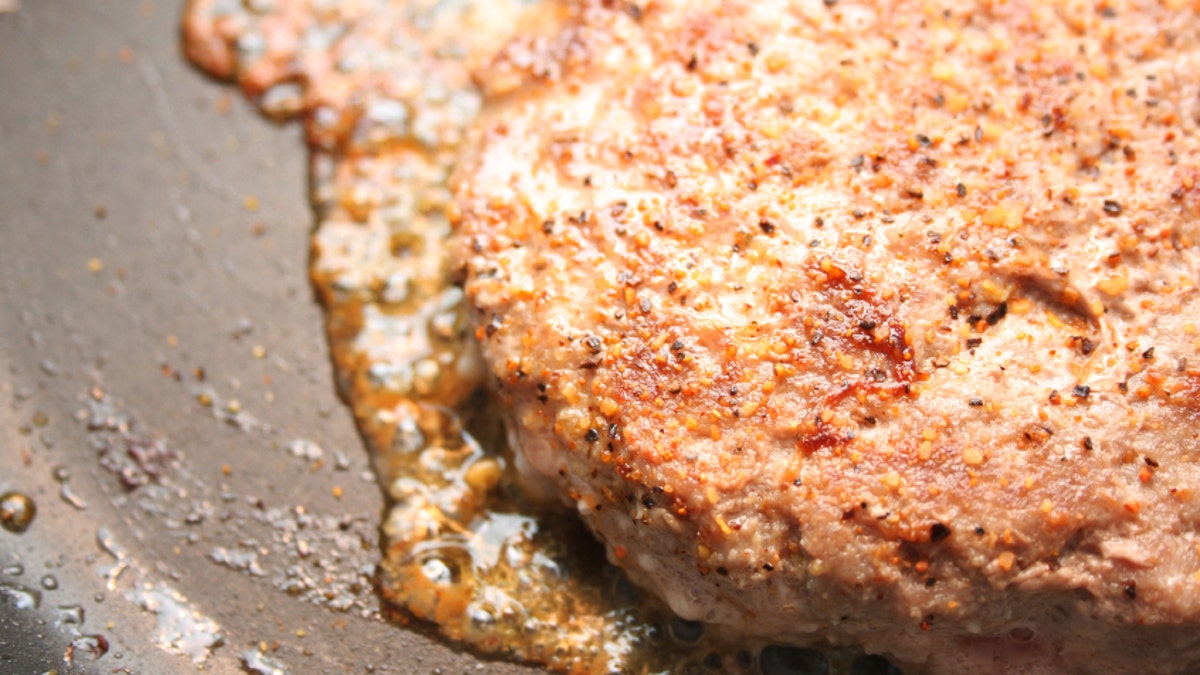
A turkey burger in a frying pan.
Dangerous antibiotic-resistant bacteria has been found in ground turkey on U.S. grocery shelves across a variety of brands and stores located in 21 states, according to a report by a consumer watchdog organization.
Of the 257 samples of ground turkey tested, more than half were found to be positive for fecal bacteria and overall, 90 percent were contaminated with one or more types of disease-causing organisms, many of which proved resistant to one or more common antibiotics, Consumer Reports found.
The non-profit, independent product-testing organization said in the June issue of its magazine that the sampling marked the first time it had conducted a laboratory analysis of ground turkey, a popular consumer alternative to hamburger. It was alarmed by the results.
"Some bacteria that end up on ground turkey, including E. coli and staph aureus, can cause not only food poisoning but also urinary, bloodstream, and other infections," said a Consumer Reports statement on its findings.
The group said it samples ground turkey from 27 different brands including major and store brands.
Turkeys, like other livestock in the United States, are commonly given repeated low doses of antibiotics in an effort to keep the animals healthy and help promote growth. But there has been growing concern that widespread use of antibiotics in animals that are not sick is speeding the development of antibiotic resistance.
The National Turkey Federation said the findings were sensationalized on a sampling that was "extremely small," and said that blaming use of antibiotics in animals was "misleading."
"There is more than one way they (harmful bacteria) can wind up on food animals," said National Turkey Federation vice president Lisa Picard. "In fact, it's so common in the environment, studies have shown that generic E.coli and MRSA (Methicillin-resistant Staphylococcus aureus) can even be found on about 20 percent of computer keyboards."
The U.S. Food and Drug Administration also found widespread contamination, discovering antibiotic resistant E coli, salmonella and other harmful bacteria in turkey, ground beef, pork chops and chicken in sampling done in 2011.
The food safety regulator says resistance of bacteria to antibiotics is "a major public health threat," and last year issued voluntary guidelines for animal health and animal agriculture industries aimed at limiting the antibiotic use in livestock. The agency has rebuffed efforts to mandate reduced usage, however.
U.S. Rep. Louise Slaughter, a New York Democrat, last month reintroduced legislation that would ban non-therapeutic uses of eight types of antibiotics in food animal production.
The Centers for Disease Control and Prevention also has issued a warning about antibiotic resistance infections, saying they are becoming increasingly difficult to treat and more infected people are likely to die.
"Humans don't consume antibiotics every day to prevent disease and neither should healthy animals," said Dr. Urvashi Rangan, Director of the Food Safety and Sustainability Group at Consumer Reports. "Prudent use of antibiotics should be required to stem the public health crisis generated from the reduced effectiveness of antibiotics."
